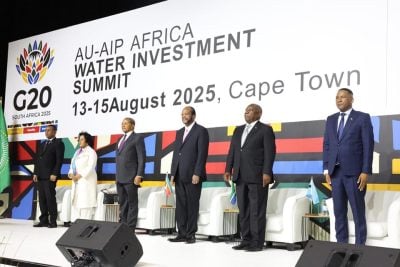This article was produced with the support of United Nations Economic Commission for Africa (ECA)
Africa has suffered disproportionally from global challenges and the vagaries of the international financial system, which means it needs to look inwards for solutions, says Zimbabwe’s Minister of Finance, economic Development and Investment Promotion, Mthuli Ncube.
He was addressing the opening session of the Committee of Experts at the 56th Session of the Economic Commission for Africa Conference of African Ministers of Finance, Planning and Economic Development, in Victoria Falls, Zimbabwe.
His remarks addressed the theme of the event: Financing the transition to inclusive green economies in Africa: Imperatives, opportunities and policy options.
Ncube said implementing the theme required a “whole government” approach, given the multi-faceted challenges it brings.
Key to driving the transition is domestic revenue mobilisation and leveraging Africa’s own resources such as its tax base, its valuable arable land and investible commodities. There is also a need to drive private sector investment in climate change adaptation and mitigation projects.
He called for a relook at the international financial architecture, which has often marginalised Africa’s interests and ensure it is fit for purpose.
The continent’s limited fiscal and monetary policy space to respond to shocks means it is often highly dependent on international financial institutions.
“It is worth mentioning that African countries are growing and geo-political tensions and the impact of climate change have had a financial impact on the continent.” Additional financing mechanisms are needed to meet this growing demand.
But debt distress is rising, he said. In Sub-Saharan Africa, the level of indebtedness stood at a high $833 billion as of 2022 and public debt ratios have increased from 28.8% of GDP to 59.1% from 2012 to 2022.
He pointed out that access to finance is tightening in the current environment and becoming expensive as advanced economies raise interest rates to fight inflation and international investors become more risk averse.
Official financing flows are also trending downward. All this makes it tough for countries to roll over their maturing debt, forcing them to make difficult policy choices.
He reminded delegates that Africa’s greenhouse emissions only account for about 5% of the total but African countries are disproportionately affected by climate change impacts.
But the future is hopeful. “Africa can be a global powerhouse for climate action and offers an opportunity for investments for the continent to be a green industrial hub. It is important to unlock the renewable energy resources that we have on our continent.”
Africa needs to use its natural resources to foster industrialisation and economic diversification, ending the export of raw materials, and to promote digital transformation.
“I encourage all technocrats and government officials to freely share ideas and policy suggestions that will guide governments in decision-making,” he concluded.

 Sign in with Google
Sign in with Google 



